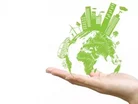The 3 Factors Contributing To The State Of Green Social Enterprise

Australia has one of the fastest growing markets for green social enterprises. Waste and recycling, energy efficiency and land management are all sectors that are contributing to this growth. Indigenous land corporations in particular are driving the increase.
But what external factors are influencing the industry currently?
1. Climate Change
Australia experiences the highest of highs and the lowest of lows when it comes to climate changes. It’s the direst inhabitable country in the world, meaning the effect of every drought or flood is amplified. The climate change isn’t just about the weather and temperature though. Major cities are growing, meaning traffic congestion, increased consumption of natural resources and higher waste generation are right up there with it.
The Federal Government is focusing its efforts on the adoption of energy efficiency measures instead of mandated greenhouse gas emission targets. As the government moves to repeal more than just the Carbon Tax, the green social enterprise industry has been at the forefront of the discussions surrounding the issues.
2. Population Growth
As a plus for the industry, Australians are becoming more aware of environmental issues, and are taking responsibility for their actions against it. Products are being reused, and more is being recycled. Sustainability is a motivator for both families and businesses, in all settings of Australia.
3. Economic Growth
The growth in the industry has been impressive in the last few years—37 percent since 2009. Victoria alone, has over 110 green social enterprises, with 460 charitable organizations and 2,500 opportunity (or thrift) shops delivering significant environmental benefits.
More than a third of green social enterprises identified are involved in the waste industry, including recycling, e-waste, and waste collection. The food industry is another dominant group, comprising 15 per cent of green social enterprise identified.
Information from analysis conducted at the Social Enterprise World Forum.
- How incoming CEO Mohit Joshi is restructuring Tech MahindraCorporate Finance
- Why Kotak Mahindra Bank has appointed an outsider as CEOLeadership & Strategy
- These are the 10 most high-profile CEO moves across AsiaLeadership & Strategy
- Ping An, Macquarie CEOs among world’s 10 most powerful womenLeadership & Strategy



